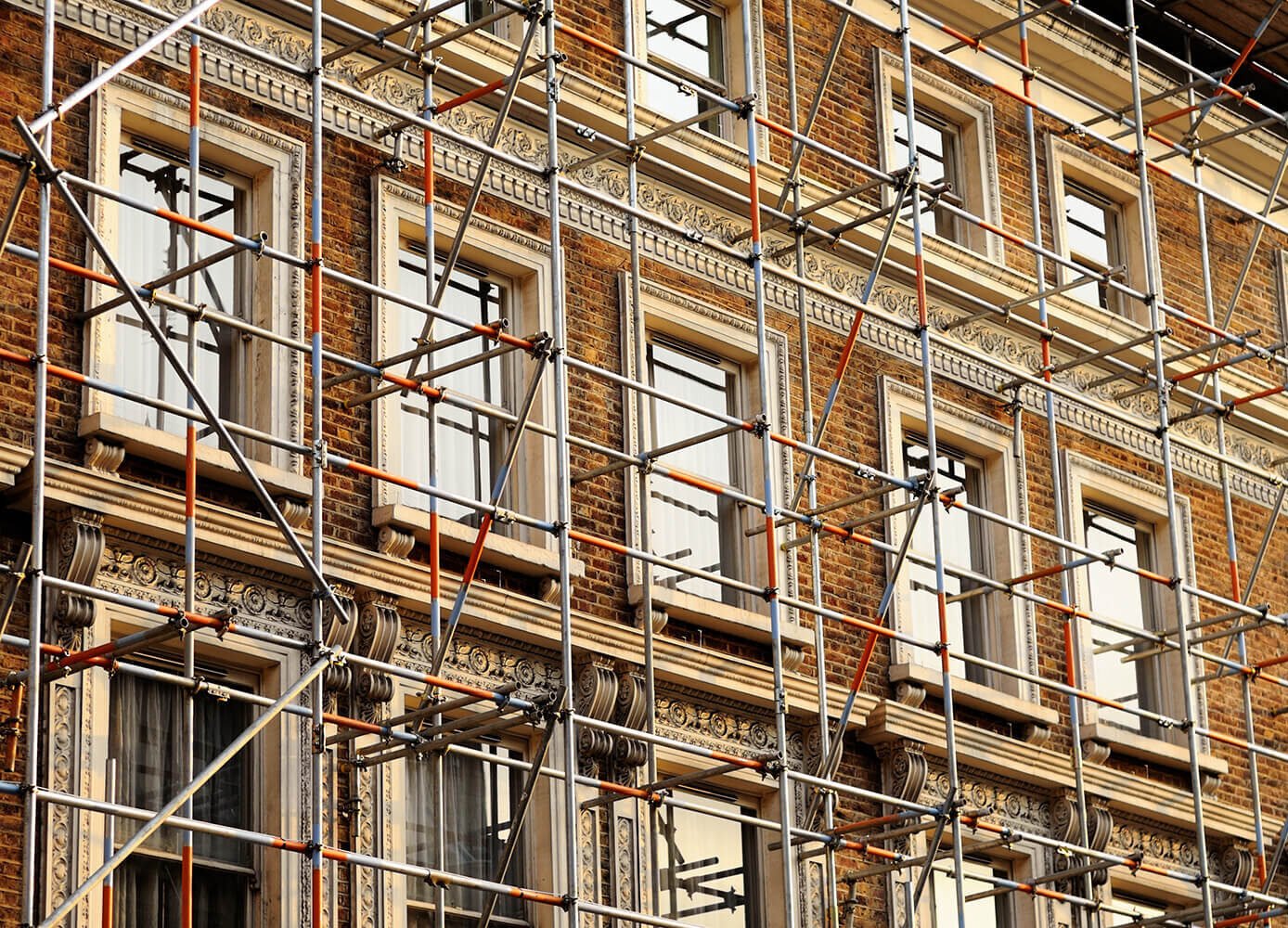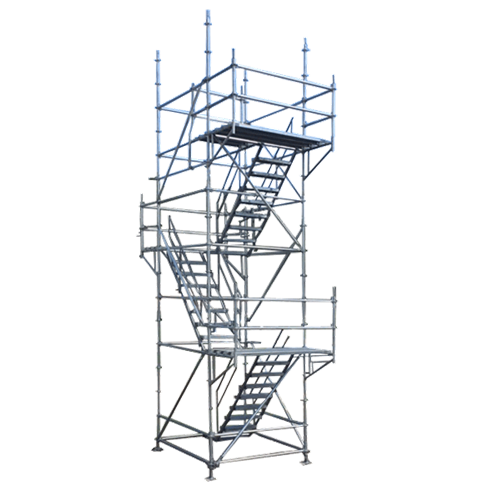Exploring the Numerous Kinds Of Scaffolding Made Use Of in Building Tasks
The building market depends greatly on numerous kinds of scaffolding to meet specific task needs, each offering unique benefits and applications. Standard framework scaffolding supplies a durable foundation for basic jobs, while put on hold scaffolding is crucial for work on skyscraper structures.

Conventional Frame Scaffolding
Typical frame scaffolding is just one of one of the most extensively made use of methods in the building and construction industry due to its toughness and versatility. This system consists of horizontal and vertical structures that are constructed to create a stable system for materials and employees. The major components include vertical articles, straight journals, and angled braces, which together offer a solid structure that can support significant lots.
One of the essential benefits of conventional framework scaffolding is its adaptability to numerous building tasks, ranging from domestic structures to huge commercial structures. The modular design enables easy setting up and disassembly, making it reliable for both temporary and long-term jobs. In addition, the system can be personalized in height and width, fitting various building layouts and website problems.
Safety is paramount in scaffolding applications, and conventional framework systems are geared up with guardrails and toe boards to stop falls and make certain employee protection. Normal evaluations and adherence to security guidelines are vital in preserving the honesty of the scaffold (Scaffolding). Generally, typical structure scaffolding continues to be an essential option in the construction sector, giving a dependable platform for labor and enhancing overall project efficiency

Suspended Scaffolding
Put on hold scaffolding provides a special solution for construction tasks that need access to raised surface areas, specifically in circumstances where traditional frame scaffolding may be unwise. This kind of scaffolding is normally put on hold from the roof covering or top levels of a framework, making use of a system of pulley-blocks, systems, and ropes to produce a functioning space that can be gotten used to numerous elevations.
One of the primary benefits of put on hold scaffolding is its versatility. It can be easily repositioned or lowered to fit adjustments in construction needs, making it ideal for jobs such as home window installation, frontage work, and upkeep on skyscrapers. In addition, the very little footprint of put on hold scaffolding enables much better use of ground area in city settings, where space is usually minimal.
Security is an important factor to consider in using put on hold scaffolding. Proper rigging and securing systems should be used to make certain security and avoid accidents. Operators should additionally be trained in the safe use this equipment. Overall, suspended scaffolding supplies a effective and effective solution for accessing hard-to-reach locations in different building scenarios, enhancing both efficiency and security on site.
System Scaffolding
System scaffolding, often regarded as a modern service in the scaffolding sector, consists of pre-engineered elements that can be rapidly constructed and adapted for various building and construction projects. Scaffolding. This sort of scaffolding is characterized by its modular layout, which permits versatility and performance on task websites, accommodating structural demands and various heights
Generally made from high-strength steel or aluminum, system find more info scaffolding uses improved durability and security. The components include upright posts, straight journals, and angled dental braces, which adjoin securely, ensuring a robust structure. The design frequently includes standardized installations, simplifying setting up and disassembly processes, consequently decreasing labor time and prices.

Rolling Scaffolding
Rolling scaffolding is a flexible choice to conventional set scaffolding, made click for info for wheelchair and convenience of use on building sites. This kind of scaffolding contains a system sustained by frameworks with wheels, permitting workers to quickly move it as required. The wheelchair function considerably boosts productivity, as it minimizes downtime related to assembling and disassembling repaired scaffolding.
Typically built from lightweight materials such as aluminum or steel, rolling scaffolding offers a durable yet mobile service for jobs calling for regular repositioning - Scaffolding. It is specifically beneficial in jobs such as painting, drywall installation, and electric work, where accessibility to numerous heights and places is required
Safety and security is vital in rolling scaffolding design, with functions such as locking wheels to stop unintentional motion when in usage, and guardrails to secure employees from falls. In addition, many designs are adjustable in height, suiting different job needs.
Cantilever Scaffolding

The layout of cantilever scaffolding typically includes using arms or braces anchored to a structure or structure, enabling the platform to prolong outward securely. Security is paramount; therefore, these scaffolds need to be crafted to withstand various loads and ecological conditions. Normal inspection and upkeep are vital to ensure architectural honesty and employee safety and security.
Cantilever scaffolding is favored for its flexibility and effective use space, making it a prominent choice in city settings where area constraints are common. Moreover, it assists in less complicated accessibility to high elevations, eventually adding to the total effectiveness of building tasks. Just like all scaffolding types, appropriate training and adherence to security standards are crucial for workers utilizing cantilever scaffolding.
Conclusion
To conclude, the varied kinds of scaffolding made use of in construction projects each offer unique functions customized to specific site requirements. Conventional framework scaffolding supplies security, while suspended scaffolding supplies flexibility for raised tasks. System scaffolding assists in fast setting up, and rolling scaffolding enhances flexibility for differing workplace. Cantilever scaffolding effectively attends to obstacles in city setups. Understanding these scaffolding kinds is important for maximizing safety and productivity in building and construction, inevitably adding to the effective completion of projects.
Conventional frame scaffolding gives a durable foundation for basic jobs, while put on hold scaffolding is necessary for work on high-rise structures.Moving scaffolding is a flexible option to traditional set scaffolding, designed for flexibility and convenience of usage on construction websites. As with all scaffolding types, appropriate training and adherence to security criteria are essential for workers making use of cantilever scaffolding.
Typical structure scaffolding offers stability, while put on hold scaffolding uses convenience for raised jobs. System scaffolding helps with quick setting up, and rolling scaffolding enhances movement for differing work atmospheres.